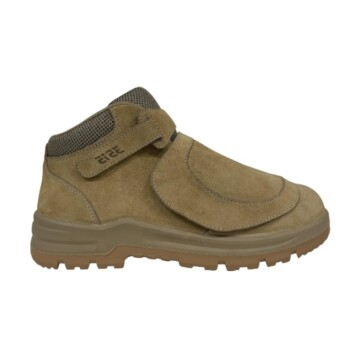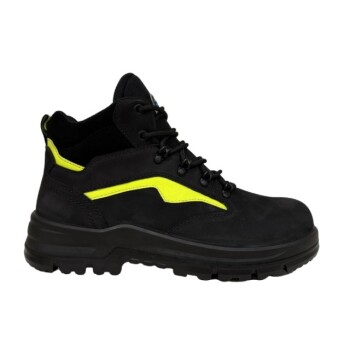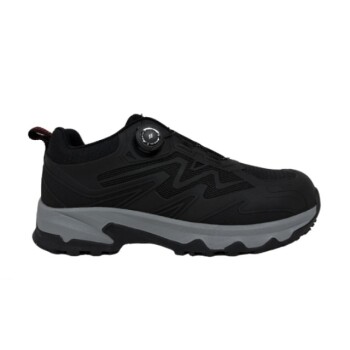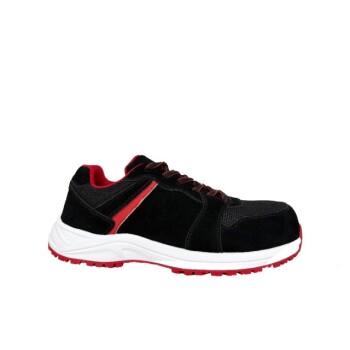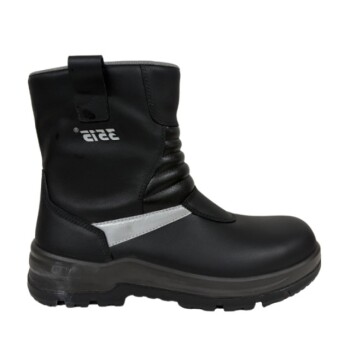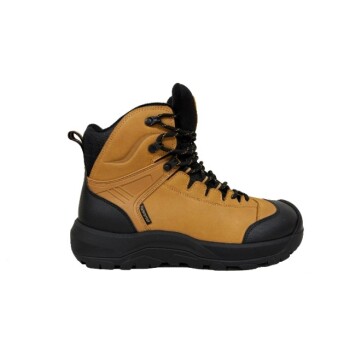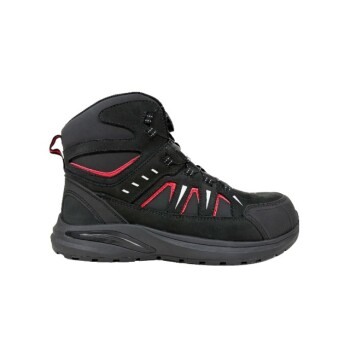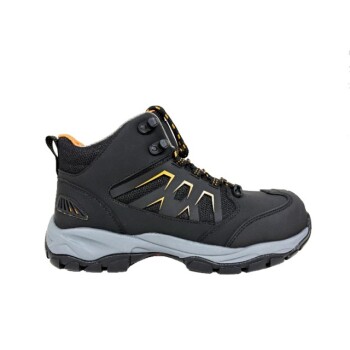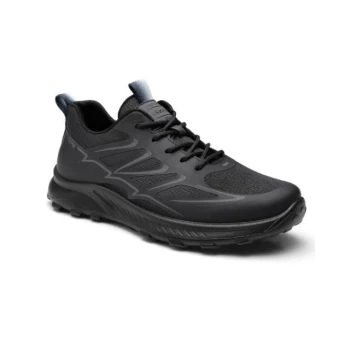The most critical factors in choosing work shoes are matching the shoe's safety features to your specific job hazards, ensuring a perfect fit from the very first wear, and selecting a design that supports your foot type and daily movements. Unlike casual footwear, safety shoes are specialized equipment where comfort and protection are non-negotiable for long-term health and performance.
Choosing the right work shoe is not about finding a durable boot; it's about selecting a piece of personal protective equipment that is precisely tailored to your body, your tasks, and your work environment.
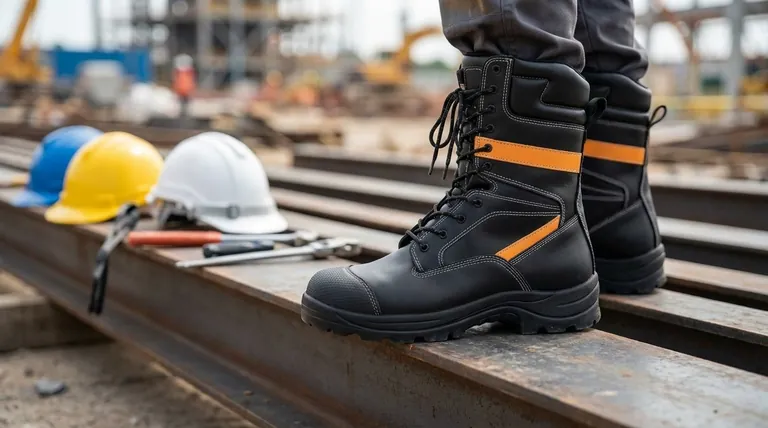
The Foundation: Safety and Compliance
Your first consideration must always be the specific hazards of your workplace. A shoe that is perfect for one job can be dangerously inadequate for another.
Assess Your Environment First
Before looking at any shoe, analyze your daily risks. Do you work on wet or oily surfaces? Is there a danger of heavy objects falling or sharp objects underfoot? The answers determine your required features.
Match the Protection to the Hazard
Work shoes are rated for specific protections. This includes steel or composite toecaps for impact resistance, puncture-resistant midsoles for protection from nails, and specialized materials for electrical or chemical hazards.
The Sole is Your Connection to the Ground
The quality and type of the sole are paramount. Look for a slip-resistant rating appropriate for your floor surfaces. The sole's material also dictates its resistance to heat, chemicals, and abrasion.
Beyond Safety: The Ergonomics of All-Day Wear
Once safety requirements are met, the focus shifts to how the shoe interacts with your body over an eight-hour day or longer. This is where most people make mistakes.
The Critical Myth of "Breaking In"
You must discard the idea of "breaking in" your work shoes. Due to their rigid, protective construction, safety shoes do not stretch or conform over time like leather trainers. An improper fit on day one will only lead to pain, gait problems, and premature wear.
Find the Perfect Fit
A proper fit means having enough room to wiggle your toes but ensuring your heel does not slip. Always measure both feet, as they are often different sizes. The shoe must also have enough width and accommodate any necessary insoles or specialized socks.
Support Your Foot Type
Your foot's natural arch (flat, neutral, or high) dictates the type of support you need. The right arch support and cushioning prevent fatigue and reduce stress on your feet, knees, and back.
Materials and Breathability
Durable materials ensure longevity, but they must also be practical. Breathable uppers are essential for preventing sweat and maintaining foot health, especially in warm environments.
Understanding the Trade-offs
Selecting the ideal work shoe almost always involves balancing competing features. Understanding these compromises is key to making an informed decision.
Protection vs. Flexibility
Shoes with maximum impact and puncture protection are often heavier and more rigid. This can reduce mobility and flexibility, which may be a concern for jobs requiring constant kneeling or climbing.
Durability vs. Comfort
The toughest, most waterproof materials are excellent for harsh conditions but can be less breathable and heavier than lighter synthetic options. This can lead to increased foot fatigue and sweat over a long shift.
Initial Cost vs. Long-Term Value
A higher upfront cost often reflects superior materials, better ergonomic design, and more durable construction. Investing in a quality pair can prevent the need for frequent replacements and reduce the long-term physical toll on your body.
Making the Right Choice for Your Goal
Filter your options based on your highest priority to find the best shoe for your specific needs.
- If your primary focus is maximum safety in a hazardous environment: Prioritize the highest protection class for your specific risks (e.g., impact, puncture, electrical) and verify its compliance certifications.
- If your primary focus is all-day comfort while standing or walking: Emphasize lightweight materials, superior cushioning, and an ergonomic design that provides excellent arch support for your foot type.
- If your primary focus is versatility across different surfaces and conditions: Look for a hybrid design with exceptional slip resistance, a water-resistant yet breathable upper, and a flexible sole.
Choosing the right work shoe is a direct investment in your daily safety and long-term physical well-being.
Summary Table:
| Key Factor | Why It Matters | What to Look For |
|---|---|---|
| Safety & Compliance | Protects against workplace hazards like impacts, punctures, and slips. | Certified steel/composite toe, puncture-resistant midsole, slip-resistant sole. |
| Perfect Fit | Prevents pain, gait problems, and injury; safety shoes do not "break in." | Room to wiggle toes, secure heel, measured for both feet, correct width. |
| Ergonomic Support | Reduces fatigue and stress on feet, knees, and back during long shifts. | Proper arch support, cushioning, and design for your foot type and movements. |
| Materials & Durability | Ensures longevity, breathability, and suitability for your work environment. | Durable yet breathable uppers, sole material resistant to heat/chemicals/abrasion. |
Ready to Equip Your Team with Superior Work Footwear?
As a large-scale manufacturer, 3515 produces a comprehensive range of safety footwear for distributors, brand owners, and bulk clients. Our production capabilities encompass all types of safety shoes and boots, engineered to meet the highest standards of protection, comfort, and durability.
Partner with us to:
- Source Reliably: Access a vast catalog of certified safety footwear.
- Customize Solutions: Develop branded or specialized shoes tailored to your market's specific hazards and needs.
- Scale Efficiently: Benefit from our large-scale manufacturing capacity for consistent quality and volume.
Invest in footwear that protects your most valuable asset—your people. Contact our team today to discuss your requirements and request a catalog.
Visual Guide
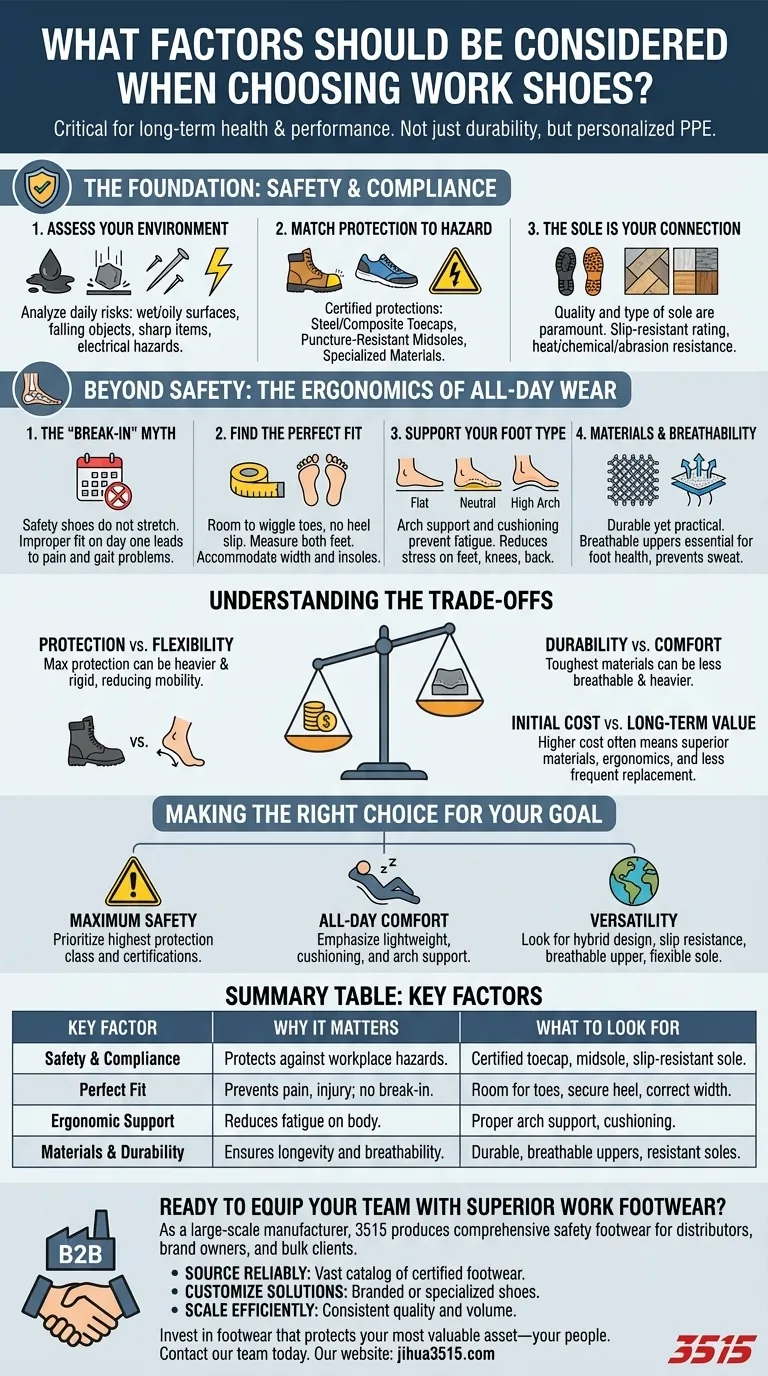
Related Products
- Premium Flame-Retardant Waterproof Safety Boots and Shoes
- Premium Suede Metatarsal Guard Safety Boots Work Shoes
- Safety Footwear Wholesale Manufacturer for Custom OEM/ODM Production
- Wholesale Premium Waterproof Nubuck Safety Shoes Boots
- Advanced KPU Athletic Safety Shoe with Steel Toe Cap Anti-Slip Rotary Lacing System
People Also Ask
- What does CE-approval indicate for safety boots? Your Guide to EU-Compliant Footwear Protection
- What are the OSHA recommendations for wearing protective footwear? A Legal Guide to Workplace Foot Safety
- How do some boots combine materials for better performance? Achieve Superior Safety & Comfort
- What are the requirements for oilfield boots? Essential Safety & Durability Features
- What is the difference between side-zip and lace-up security guard safety boots? Speed vs. Perfect Fit

